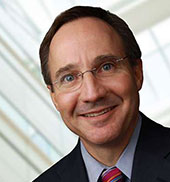Background
Congress passed The Small Business Reorganization Act of 2019 (the “SBRA”) for small businesses, currently defined as debtors with less than $7.5 million in debt. SBRA created a new Subchapter V, which can be used by both individual debtors or business entities, such as corporations, limited liability companies or partnerships (hereinafter “Business Entities”). While Congress intended to streamline and facilitate small business reorganizations, two recent cases discuss a little-noticed provision of Subchapter V that limits the ability of Business Entities to discharge certain kinds of debts in a Subchapter V plan.
SBRA added section 1192 of the Bankruptcy Code, which discusses a Subchapter V debtor’s rights to discharge debts in a Subchapter V plan. This section says that a debtor may discharge debts that arose before confirmation of the plan except debts “of the kind specified in section 523(a) of [the Bankruptcy Code].” Section 523(a), of course, contains nineteen separate subsections describing debts that cannot normally be discharged ranging from debts arising out of domestic support obligations to debts incurred by violating federal election laws. While the majority of the debts described in Section 523(a) are unlikely to arise in a small business case, some of the other kinds of debts described in Section 523(a) occasionally do arise in small business cases: such as the debts obtained by fraud or a material misstatement in a financial statement.
Section 1192’s discharge language differs from language in Section 1141(d), which governs discharges in regular Chapter 11 cases (i.e. Chapter 11 cases not filed under Subchapter V). Section 1142(d)(2) says individual debtors cannot receive a discharge of debts described in Section 523(a), but is silent on whether Business Entities can receive a discharge of the debts described in Section 523(a), leading the courts to conclude that a Business Entity may discharge otherwise non-dischargeable debts in its Chapter 11 plan. But Section 1192’s language excepts debts of the kind specified in Section 523(a) from discharge without regard to whether the Subchapter V debtor is an individual or a Business Entity.
Recent cases have grappled with this apparent disconnect between Subchapter V’s enhanced reorganization policy and Section 1192’s discharge language, which is more restrictive than outside of Subchapter V. A detailed discussion of two such cases follows:
Fourth Circuit
In the case of Cantwell-Cleary Co., Inc., v. Cleary Packaging, LLC, after Cantwell-Cleary obtained a judgment against Cleary Packaging, Cleary Packaging filed a Subchapter V bankruptcy case seeking to discharge the judgment. However, Cantwell-Cleary filed a complaint against Cleary Packaging seeking a declaratory judgment and arguing that Cleary Packaging cannot discharge the judgment as it fell within one of the exceptions of debts that cannot be discharged under §523(a). In turn, Cleary Packaging argued that as a corporate debtor, the §523(a) exceptions to discharge do not apply to it. While the bankruptcy court agreed with Cleary Packaging and dismissed the action finding that the exceptions do not apply to corporate debtors because of the limiting language in §523(a), the Fourth Circuit reversed and held that the §523(a) exceptions to discharge apply to corporate debtors in Subchapter V cases.
The Fourth Circuit relied on many arguments in reaching its conclusion. The court reviewed the statutory language and the interplay between §523(a) and §1192 and stated that while §1192 provides for the discharge of debts for both individual and corporate debtors, the question remains as to whether the introductory language in §523(a) limits the exceptions to discharge to individual debtors. The court focused on the language of the statutes and noted that §1192(2) excepts from discharge any debt of the kind specified in §523(a), but does not specifically reference the kinds of debtors, as §523(a) explicitly does. Therefore, the court found that “the debtors” covered by the language of §1192(2), which includes both individual and corporate debtors, are not exempt from the “kinds of debt” listed in §523(a).
Additionally, the court referenced that the language in Chapter 12 is virtually identical to the language included in §1192(2) and that courts, in interpreting that language, have concluded that the discharge exceptions apply to both individual debtors and corporate debtors. To interpret the same language elsewhere in the Bankruptcy Code in a different manner would lead to an inconsistent result.
Lastly, the Fourth Circuit believed that allowing the discharge exceptions to apply to both individual and corporate debtors in Subchapter V would comport with the purpose behind Congress’ creation of Subchapter V. Congress aimed to simplify Chapter 11 reorganizations for small business and reduce administrative costs for those businesses. In doing so, the purpose was to provide similar benefits to individuals and also to corporations. Thus, adopting Cleary Packaging’s interpretation of the issue and treating the two types of debtors differently would frustrate that purpose.
Western District of Texas Bankruptcy Court
Several months later, a bankruptcy court for the Western District of Texas, disagreed with the Fourth Circuit’s reasoning. In Avion Funding, LLC v. GFS Industries, LLC, Avion Funding initiated an adversary proceeding against GFS Industries, which was in bankruptcy, stating that GFS Industries failed to disclose to Avion Funding’s affiliate that a bankruptcy filing was imminent when it was seeking funding from such affiliate and thus the debt GFS Industries owes to Avion should be deemed non-dischargeable.
The court sided with the debtor GFS, and held that Avion’s claims under §523(a) must be dismissed because §523(a) only applies to individual debtors, not corporate debtors. Unlike the Fourth Circuit, this bankruptcy court interpreted the introductory preamble to §523(a) in a way that limits the applicability of the exceptions solely to individual debtors. It stated that although on its face §1192(2) seeks to incorporate the list of debts that are deemed non-dischargeable without regard to the type of debtor, the preamble to §523(a) is critical to the analysis as it contains language limiting discharge to only individual debtors. Further, by amending §523(a) and adding reference to §1192 into the preamble, the intent was to treat discharges pursuant to §1192 similar to all other discharges under Chapter 11. The court found that §1192(2)’s reference to §523(a) only incorporates the list of non-dischargeable debts without expanding it, and as such §1192(2) is not intended to except from discharge any debts that §523(a) does not already except and does not empower §523(a) to cast a wider net than the text permits.
In addition, the court noted that if Congress intended to exempt corporate debtors from discharge of the debts listed in §523(a), it could have done so similarly to the express exemption in §1141(d)(6) to corporate debtors. The court stated that when Congress drafted §1192(2), it knew how to distinguish dischargeability based on the type of debtor and did not make such distinction in §1192(2). Thus, courts must look to the language of §523(a) which applies solely to individual debtors.
Further, the bankruptcy court reiterated that in creating Subchapter V, Congress intended to expand, not discontinue, the principles of Chapter 11 and since Subchapter V is a subsect of Chapter 11, courts should not depart from the well-established principle that corporate debtors are not subject to the §523(a) exceptions to discharge. The fact that the language of §1192 is similar to that of language in Chapter 12 does not provide reason to treat Chapter 11 cases as if they are Chapter 12 proceedings. Chapter 12 provides broad language because that is consistent with Congress’ intent to provide special treatment for certain kinds of debtors. Chapter 12 cases have unique considerations not present in Chapter 11 cases and thus courts are not mandated to extend Chapter 12 interpretation to Chapter 11 cases, despite similar language.
On February 3, 2023 the bankruptcy court granted Avion Funding’s motion to certify its order for direct appeal to the Fifth Circuit. The question that will be presented on appeal will be whether corporate debtors proceeding under Subchapter V of Chapter 11 may be held liable for claims under 11 U.S.C. § 523(a). If the Fifth Circuit affirms the bankruptcy court it will create a circuit split between the Fourth and Fifth Circuits which are the only two Circuit Courts to consider this issue. Several recent bankruptcy court decisions have reached the same conclusion as the bankruptcy court in Avion Funding. See Jennings v. Lapeer Aviation, Inc. (In re LaPeer Aviation, Inc.), Adv. No. 22-03002, 2022 Bankr. LEXIS 1032, 2022 WL 1110072 (Bankr. E.D. Mich. Apr. 13, 2022); Catt v. Rtech Fabrications, LLC (In re Rtech Fabrications, LLC), 635 B.R. 559 (Bankr. D. Idaho 2021); Gaske v. Satellite Rests. Inc. (In re Satellite Rests. Inc.), 626 B.R. 871 (Bankr. D. Md. 2021).
Conclusion
The outcome in Avion Funding may shape the scope of the discharge available to small business debtors in Subchapter V cases. Practitioners should consider two factors before filing the case. First, to the extent that the debtor can obtain venue of its case only in a jurisdiction that restricts the scope of the Business Entity’s Subchapter V discharge, the debtor may choose to file a regular Chapter 11 case rather than a Subchapter V case. Second, to the extent that the Business Entity has a choice of possible venue, it may choose to file in a venue that does not limit a Business Entity’s Subchapter V discharge.
Thompson Coburn’s Financial Restructuring group is well versed in all of the nuances and developing caselaw surrounding the SBRA. Katharine Clark currently serves as a panel Subchapter V Trustee for the Bankruptcy Court for the Northern District of Texas. Joseph Orbach has served as counsel to Debtors and Creditors in Subchapter V cases.






